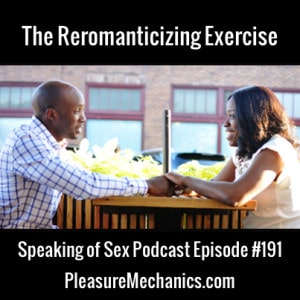Podcast: Play in new window | Download

In this episode, we explore what it means to take care of your lover when sickness or illness strikes. In many of our wedding vows, we commit to loving one another “in sickness and in health, in good times and bad.” But what does this really look like in day to day life? And how does tending to one another lead to a better sex life in the long run?
In this episode we explore:
- How can we receive and give care in hardest of times, most unsexy times?
- What does partnership and kinship look like vs. relationship based on lust
- When you are ill or injured and vulnerable can you ask for help?
- How does it feel to offer love and devotion when you are the caregiver?
- What does it mean to deal with your lover’s body in it’s most unerotic state?
- How do you then transition back return to an erotic relationship



